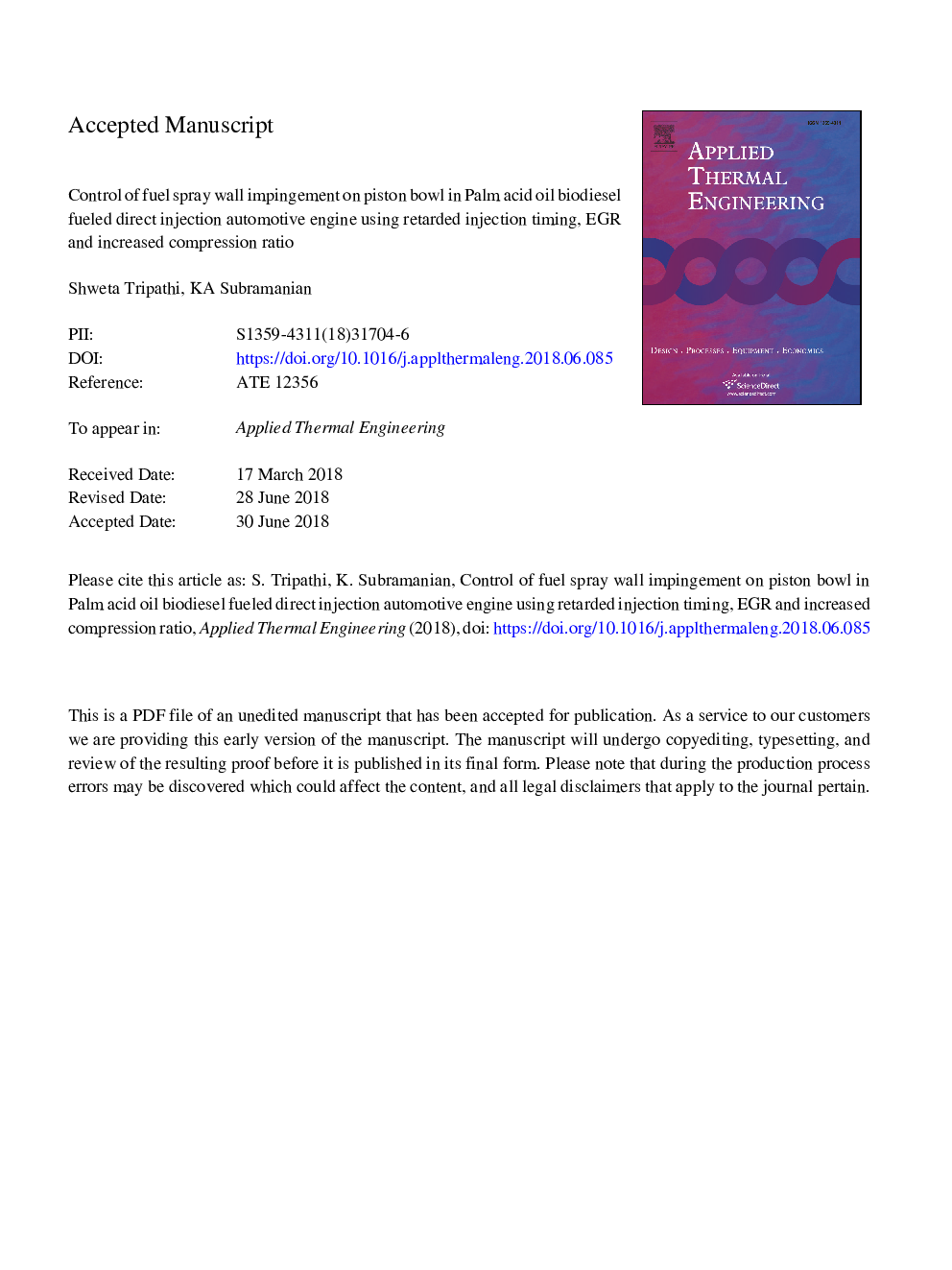| Article ID | Journal | Published Year | Pages | File Type |
|---|---|---|---|---|
| 7044760 | Applied Thermal Engineering | 2018 | 36 Pages |
Abstract
An experimental investigation was carried out to analyse the effect of palm acid oil biodiesel (B100) on spray penetration distance and wall impingement, brake thermal efficiency and nitrogen oxides (NOx) emission of an automotive compression ignition engine with rated power output of 5.9â¯kW. The spray penetration and the probability of wall impingement for diesel and biodiesel fuel were predicted using measured physico-chemical properties, combustion and injection characteristics at maximum torque and maximum power conditions of engine. The prediction indicated that the probability of spray wall impingement for palm acid oil biodiesel is higher than that of diesel. The effects of increased compression ratio (21:1), retarded injection timing (by 2.5°CA and 5°CA) and combination of increased compression ratio (21:1) and EGR (10% and 20%) on probability of spray wall impingement were studied in detail. These techniques such as retarding of injection timing, increased compression ratio, exhaust gas recirculation could reduce the probability of wall impingement however these techniques affect negatively on brake thermal efficiency and NOx emission. The retarding injection timing by 2.5°CA reduces the probability of wall impingement because the in-line pressure decreased. The combined effect of increased compression ratio (21:1) and EGR (20%) is an effective strategy to minimise the probability of wall impingement due to higher charge density at higher compression ratios. This technique also improves thermal efficiency and NOx emission.
Related Topics
Physical Sciences and Engineering
Chemical Engineering
Fluid Flow and Transfer Processes
Authors
Shweta Tripathi, K.A. Subramanian,
